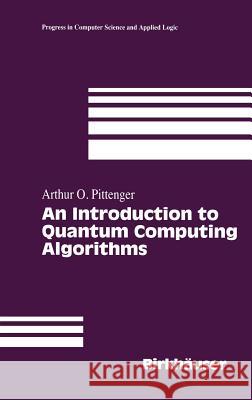An Introduction to Quantum Computing Algorithms » książka
An Introduction to Quantum Computing Algorithms
ISBN-13: 9780817641276 / Angielski / Twarda / 1999 / 140 str.
In 1994 Peter Shor 65] published a factoring algorithm for a quantum computer that finds the prime factors of a composite integer N more efficiently than is possible with the known algorithms for a classical com puter. Since the difficulty of the factoring problem is crucial for the se curity of a public key encryption system, interest (and funding) in quan tum computing and quantum computation suddenly blossomed. Quan tum computing had arrived. The study of the role of quantum mechanics in the theory of computa tion seems to have begun in the early 1980s with the publications of Paul Benioff 6]' 7] who considered a quantum mechanical model of computers and the computation process. A related question was discussed shortly thereafter by Richard Feynman 35] who began from a different perspec tive by asking what kind of computer should be used to simulate physics. His analysis led him to the belief that with a suitable class of "quantum machines" one could imitate any quantum system."











